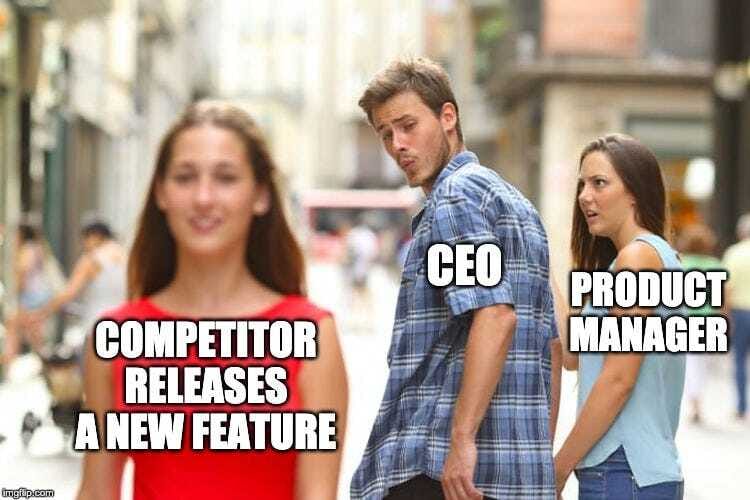- Out of Scope
- Posts
- 🚀 The Recognition Playbook: Why Smart PMs Give Credit Like It's Currency
🚀 The Recognition Playbook: Why Smart PMs Give Credit Like It's Currency
The one thing that unlocks your team's best work
Picture this: Your team just shipped a major feature that saved Q4. The engineering lead rewrote the entire infrastructure. Your designer nailed the UX after three iterations. The data analyst found the insight that changed everything.
In the all-hands, the CEO announces the win: "Incredible work by the product team on our launch!" Everyone claps. You feel great for about five seconds.
Then you notice your engineering lead is checking their phone during the applause. Six months later, they give their notice. The reason? They rewrote the entire system, but nobody outside your team knows they exist.
Why Getting Overlooked Kills Teams
Here's what separates good PMs from great ones: A great PM's hallmark is lifting up their entire team. Not just managing up or wrangling stakeholders—making sure every person who contributed to your success is recognized for their specific impact.
When you master strategic recognition, something magical happens. Your team becomes more invested in the mission because they know their unique contributions will be valued and recognized. Other talented people start asking to work on your projects. Leadership trusts you with bigger initiatives because you consistently build high-performing teams.
The Hand of the King Problem
Remember Tyrion Lannister? A brilliant strategist and master of influence, yet he constantly had to prove his worth because he lacked traditional authority. Sound familiar?
As a PM, you're like the Hand of the King. You're not the king (CEO), you're not commanding armies (engineering), and you're not sitting on a dragon (design). But somehow, you need to convince everyone to march in the same direction toward your product vision.
The Hands who lasted weren't the ones who hoarded credit or tried to take over. They were the ones who made their key players feel valued, seen, and essential to the kingdom's success.
Three Recognition Messages That Work
Here are three recognition messages you can copy, paste, and customize this week:
1. The Upward Recognition Message
"Hi [Executive], Quick win to share: Sansa discovered our checkout was failing silently for 15% of mobile users. Her fix recovered $1.2M in annual revenue!"
When to use: Send to your leadership after any significant bug fix, revenue win, or customer save. Send within 24 hours while the impact is fresh.
2. The Peer Recognition Slack
"@channel Arya just saved the day by figuring out how to reduce our API response time by 30%. If you're working on anything performance-related, she's your go-to expert now."
When to use: When someone solves a complex technical problem, creates reusable solutions, or develops expertise that others can leverage.
3. The Failure Recognition
"Shoutout to @jon for the bold experiment on dynamic pricing. It didn't increase conversion as hoped, but his analysis doc is now our playbook for what NOT to do—saving us months of future testing."
When to use: After failed A/B tests, unsuccessful feature launches, or when someone takes a calculated risk that doesn't pan out, but the team learns from it.
The Recognition Playbook: From Good to Great
Level 1: The Basics (Table Stakes)
Public Channel Shoutouts: At Noom, we had a kudos channel where anyone could spotlight great work. Simple, effective, and creates a culture where good work gets noticed. If your company doesn't have this, create it.
Feature Launch Credits: When presenting completed features to executives, lead with who did what: "The 12% conversion increase came from Sansa's insight about our mobile checkout flow, and Bran's backend work kept us scaling smoothly."
Level 2: Systematic Recognition (Where Good PMs Operate)
Points-Based Recognition Systems: At ZipRecruiter, we used Bonusly—a platform where you could give digital points redeemable for actual rewards. It gamified appreciation and made recognition tangible. The key insight: when recognition has real value, people take it seriously.
Leadership-Sponsored Recognition: Get your executives involved. At my current company, our founder posts "plays of the week" every Friday in Slack, recognizing individual contributions. When recognition comes from the C-suite, it amplifies throughout the entire organization.
Level 3: Strategic Recognition (Where Great PMs Dominate)
Failure Recognition: This is where most PMs miss the mark. Recognition during setbacks is 10x more powerful than recognition during success. When my team at Hims worked around the clock on a launch that got delayed due to external factors, I asked the CEO to publicly thank them for their effort despite the changing timelines. It made a huge difference for team morale and re-energized the team.
The Bottom Line
Here's the reality: The best product managers are eventually forgotten by their products but remembered by their people.
In 10 years, no one will remember who shipped that Q4-saving feature. But Ned will remember the PM who made sure the CEO knew his name. Jon will remember the leader who celebrated his failed experiment. Your team will remember that working with you was the inflection point in their career.
That's not just good leadership. That's how you build a network of talented people who will follow you from company to company, startup to startup, challenge to challenge.
Winter is coming. Your move, Hand of the King.
This week, I'm taking a moment to recognize all of you readers who take time out of your week to engage with these ideas. Your comments, shares, and feedback make this newsletter better every week. Thank you for being part of the Out of Scope community!
Our First-Ever Out-of-Scope Riddle 🥳
I am an odd number.
Take away a letter and I become even.
What number am I?
The Meme

Who else has been in this situation? Let me see some hands.